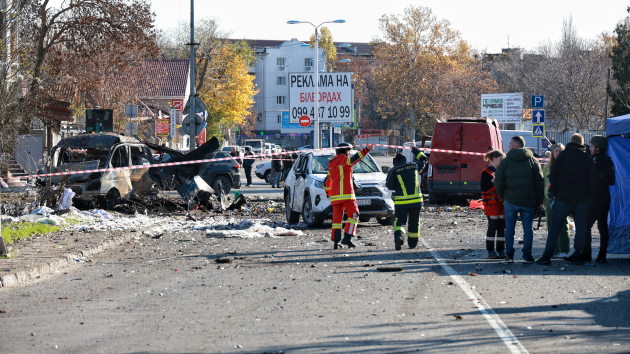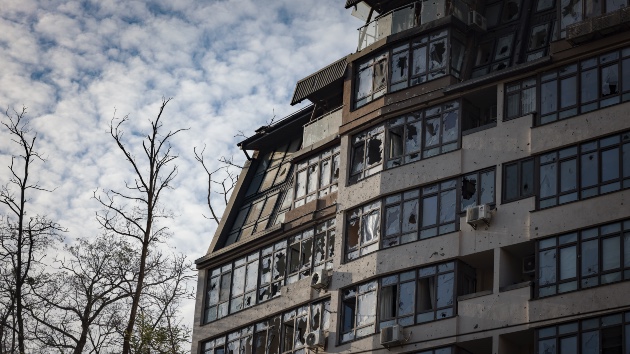US steps up warnings to Guatemalan officials about interference in country’s election
Written by ABC Audio ALL RIGHTS RESERVED on July 26, 2023

(NEW YORK) — With Guatemalan authorities appearing to ramp up their interference in the country’s presidential election, including last week’s raids of the election tribunal offices and the anti-corruption candidate’s party offices, the U.S. is sending stronger signals to back off.
The top U.S. diplomat for the Western Hemisphere called Guatemala’s foreign minister on Tuesday to stress that the runoff should be allowed to take place “without interference or harassment of the candidates or political parties. Guatemalans have the right to elect their government,” Assistant Secretary of State Brian Nichols said on social media on Monday.
Guatemalan Foreign Minister Mario Búcaro confirmed the call took place, but spun the conversation as a “pleasure,” saying they had discussed the “positive role that the executive branch of Guatemala has played in guaranteeing the development of the electoral process.”
A Biden administration official confirmed to ABC News that the State Department will also host both runoff candidates — reform candidate Bernardo Arévalo and establishment candidate, former first lady Sandra Torres — in Washington.
“We routinely engage with candidates ahead of elections in support of democratic institutions and to deepen relations between the United States and other countries,” the official said.
The meetings are expected to send a growing message that the U.S. government is closely watching the situation and is invested in a free and fair election.
So is the rest of the region. The Organization of American States is meeting for a special session Wednesday, with briefings by the head of its election observation mission and the president of Guatemala’s Supreme Electoral Tribunal, who declared Arévalo and Torres the runoff candidates and had their offices raided last Thursday.
The concern here is only growing because of the increasingly authoritarian measures Guatemala’s ruling class has been taking to crack down on political opposition, free speech, and anti-corruption measures. Saturday, for example, also marks one year of detention for prominent investigative journalist José Rubén Zamora, who was sentenced to six years in prison last month on bogus charges.
At the National Press Club in Washington Wednesday, the Committee to Protect Journalists, Zamora’s son and a Guatemalan journalist in exile will mark his first year in prison and again raise concerns about “the erosion of democracy in the country and the region,” per a press release.
Look around the region, and that erosion is stark — in El Salvador and Honduras, whose governments are using severe anti-gang measures to violate human rights — and especially in Nicaragua, where dictator Daniel Ortega and his wife and Vice President Rosario Murillo have sent tens, if not hundreds, of thousands of Nicaraguans fleeing, including in record numbers to the U.S. southern border.
Arévalo’s Semilla Party stunned the South American nation with a second-place finish in the June elections, beating out other establishment candidates in a vote that international observers from the OAS and the European Union determined was spared of major inconsistencies.
But the election environment had long been tainted by Guatemalan authorities, with President Alejandro Giammattei’s government barring three top opposition candidates in the months before the vote — including the leading candidate.
That sparked strong statements of condemnation from the U.S., EU and others, but it also brought a wave of protest votes from Guatemalans. Nearly 25% of the ballots cast in that first round were either spoiled or marked “null” — hundreds of thousands showing they have zero faith left in the country’s political system.
But the rest of those protest votes went to Arévalo, who ran a campaign zeroed in on corruption after decades of rule by a small group of corrupt elites. The son of the first democratically elected Guatemalan president, Arévalo laid out detailed plans for reforms, including creating a national anti-corruption system.
Guatemala once had a similar anti-corruption court, backed by the U.N. and the U.S., but it was disbanded in 2019 by Giammattei’s predecessor, with critics saying the issue has only worsened since then.
Just last week, the U.S. sanctioned 10 Guatemalan officials, barring them from obtaining U.S. visas. The list includes several judges and prosecutors accused by the State Department of “authorizing politically motivated criminal charges against journalists for exercising their freedom of expression as protected by Guatemalan law,” including Zamora.
Copyright © 2023, ABC Audio. All rights reserved.

 KVSP
KVSP 



